In the aftermath of 9/11 those people who realised that the official story was false looked to explain how the Twin Towers could have been demolished in such spectacular fashion. A scientist named Judy Wood stepped forward to offer clarity. She asserted that the World Trade Center (WTC) had been turned to dust by an energy weapon.
Wood proposed that the structural steel in the building had, in her terminology, been 'dustified.'
This claim was immediately refuted by the presence of thousands of tons of structural steel in the debris field that were witnessed, filmed, and photographed.
The demonstrable reality of the steel not having turned to dust might have been thought sufficient to refute the proposition that it had turned to dust, yet many years later it appears that in some quarters this has not been the case.
Undeterred by this seemingly straightforward refutal of her theory, Judy Wood advanced the notion that the WTC was attacked by Star Wars Directed-Energy Weapons that were located, “very likely…in orbit.” The idea of beam weapons being fired from space has understandably led some people to refer to it as the, ‘space beams,’ theory, but Wood is at pains to point out that she has never used that term, apparently viewing it as misrepresentative. Instead she called it a, “Star Wars Beam.”
The unusual nature of the event and the resulting debris field was cited by Wood as supporting her theory. From selected images she concluded that there was insufficient debris to account for the Towers, although huge piles of structural steel were photographed. In such images a sense of the scale of the pile is not always apparent.
In addition, photographs show only the surface of the rubble pile and not the fact that, “the basements were 7 storeys deep which would have provided space for a great deal of material.” In an interview, Wood seems unwilling to acknowledge the scale of the primary debris field “containing the vast majority of the building,” which according to FEMA “extended as far as 400 to 500 feet from each tower’s base,” with an estimated diameter of 1200 feet.
The size of the rubble pile in relation to the towers may be counterintuitive to the causal onlooker but as physicist Greg Jenkins explains,“skyscrapers are designed to be mostly empty space by volume. When a skyscraper fully collapses, like WTC7, the debris is contained in a small pile many times smaller than its pre-collapse height.”
To illustrate this point he calculates that, “if all the steel in the upper 110 floors of a WTC tower were hypothetically melted down into its own footprint, the resulting slab would only be about seven feet high.” Jenkins concludes that, “all of the debris in the WTC complex can be accounted for within the sublevel collapses.” Engineers surveying, “the 16-acre basement under the ruined trade center complex…found a varied pattern of destruction,” but, “the basement floors directly under the two collapsed towers (were) simply rubble.”
Strangely, despite evidence to the contrary, Judy Wood says, “the "rubble pile” from WTC1 is essentially non-existent.” She also says she does not see any significant debris falling down in the destruction of the twin towers.
When questioned about this, she qualified, "I'm not saying there is absolutely no debris, because someone may have had some, like, pennies on their window sill that fell out. They might be falling down. But it's not a significant volume of material."
She contends that “the upper 80 percent, approximately, of each tower… did not crash to the earth,” and that a photograph of the demolition of the South Tower shows it “going up” into “the upper atmosphere” as “ultra-fine dust.” What Wood refers to as dust is smoke from oxygen starved fires in the North Tower which is behind the South Tower and so not visible in the picture. This smoke was present before and after the South Tower’s collapse. For the South Tower to go up it would have to have been made lighter than air.
Wood offers seismographic data as evidence that the Twin Towers were turned to dust, claiming that readings were not sufficiently high to reflect the mass of the falling structures. This overlooks the fact that the towers did not fall in a single block from a great height, that the concrete was observably exploding in mid-air and so not hitting the ground intact, and that the debris was falling irregularly and “thus having a canceling effect,” on the creation of a wave signal. Furthermore, “once an appreciable layer of steel beams had formed, the stack would act as a giant shock absorber, with energy being diffused in elastic and plastic deformation.”
A notion that the seismic signal was too short in duration is explained by the fact that, although videos show the demolition lasting up to 14 seconds, the first sections to hit the ground did so after approximately 8 seconds.
Wood surmises that the seismic signal created by the falling towers was too low by comparing it with that recorded during the demolition of the Kingdome sports stadium in Seattle, a concrete structure of a very different nature.
On 9/11, significantly different readings were recorded from each of the two plane impacts, and from the falls of the Twin Towers. Comparison with the third steel framed skyscraper that came down on 9/11 also suggests that such comparisons are flawed.
“Even though the potential energy of the North Tower compared to WTC 7 was about 5 times larger, the energy derived from the Richter scale measurements is 87 times larger. To conclude from this that most of the debris from Building 7 never hit the ground would clearly be absurd.”
It is also of note that although the concrete was pulverised and might colloquially be said to have been reduced to dust, technically speaking it was not wholly so, as shown by a sample of the debris blown into the apartment of,
“Janette MacKinlay at 113 Liberty Street, just across from the South Tower…Thus, the pulverization was in fact NOT to fine dust, and it is a false premise to start with…Indeed, much of the mass of the MacKinlay sample was clearly in substantial pieces of concrete and wall-board rather than in fine-dust form.”
Wood also points to the position and conditon of burned out cars as evidence of her theory. She argues that cars were “toasted,” on FDR Drive seven blocks away from the WTC but those cars were towed there to clear the area around the WTC for the rescue effort. The fires were caused by molten metal and thermitic reactions which are observable in footage of the falling debris. Contrary to Wood’s perception the results did not differ from regular car fires.
The rapid onset of rust on the cars is cited by Wood as being evidence of beam weaponry. In reality the rust was caused by the fires removing protective paint layers from the cars and a subsequent exposure to a blanket of abrasive WTC dust and the, “estimated 4 million gallons of water (that) doused the bathtub region between 9/11 and 9/21 from rain and fire hose.” The heat, damp, and dust, provided ideal conditions for a corrosive effect similar to that of salt water.
Wood claims that the debris was not hot, and that paper did not burn. That some paper did not burn is true as it was blown out of the towers by the plane impacts and subsequent explosions. Inevitably against a backdrop of dust and debris, the paper that did burn is not particularly noticeable. What is noticeable is that in photographs of the immediate aftermath unburned paper is often absent in the immediate vicinity of burned out cars. Burning paper was photographed on the ground and reported falling by witnesses.
Similarly Wood claims that the falling debris was cold while eye witnesses reported it as “warm,” or “hot.” Port Athority Police Sergeant Sue Keane who experienced explosions in the North Tower, stated, “my skin was actually burning.” Wood also denies the presence, “ of molten metal before, during, or after” the collapses, despite its visible presence on film and in photographs and its many witnesses, including firefighters who described, “molten steel running down the channel rails, like you’re in a foundry.” Similarly, she argues that the debris pile was cold in the face of all the available evidence that documented 90 day fires at Ground Zero.
The WTC neighbours a flood defence called ‘the bathtub’ that protects Manhattan from the Hudson River. Wood contends that if the WTC had been brought down by controlled demolition the bathtub would have suffered “significant damage,” and that it did not. In fact, it was reported damaged by quotes used by Wood in her own paper.
She cites the New York Times which describes the collapses as having “left one section perilously unsupported,” though the damage to the bathtub was, “not as extensive as some engineers had feared.”
Elsewhere one of numerous similar accounts was headlined, “Half of WTC ‘Bathtub’ Basement Damaged By Twin Towers’ Fall,” which detailed that,
“Outside the tower footprints, the section of greatest concern within the so-called 1,000 x 500-ft bathtub is along its south side. There, a 200 x 30-ft hole from 40 to 70 ft deep sits between the tub's perimeter slurry wall and the remains of Two WTC. “A significant part of the south tower fell in and collapsed everything,”
An expectation of more damage than was suffered may be erroneous for the reason that the bathtub has survived numerous natural events of greater seismic activity than the fall of the WTC. The events of 9/11, registered 2.3 on the Richter scale but between 1970 and 2002, “at least 21 earthquakes having a magnitude greater than 3.0 occurred in that area.”








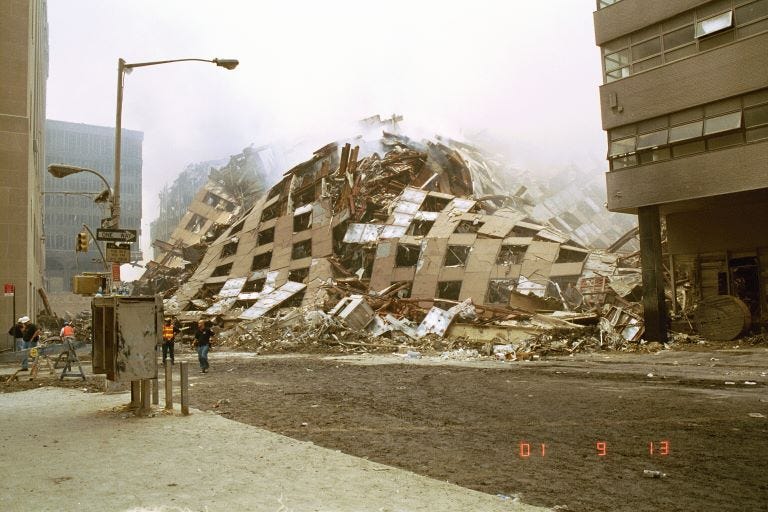
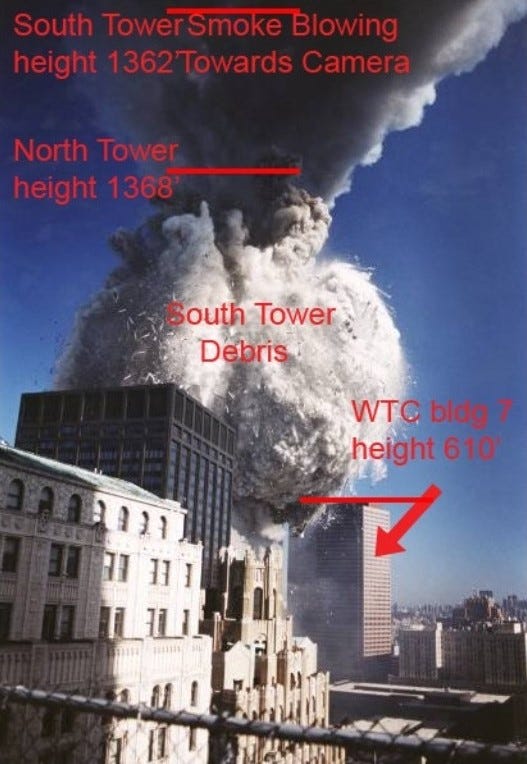
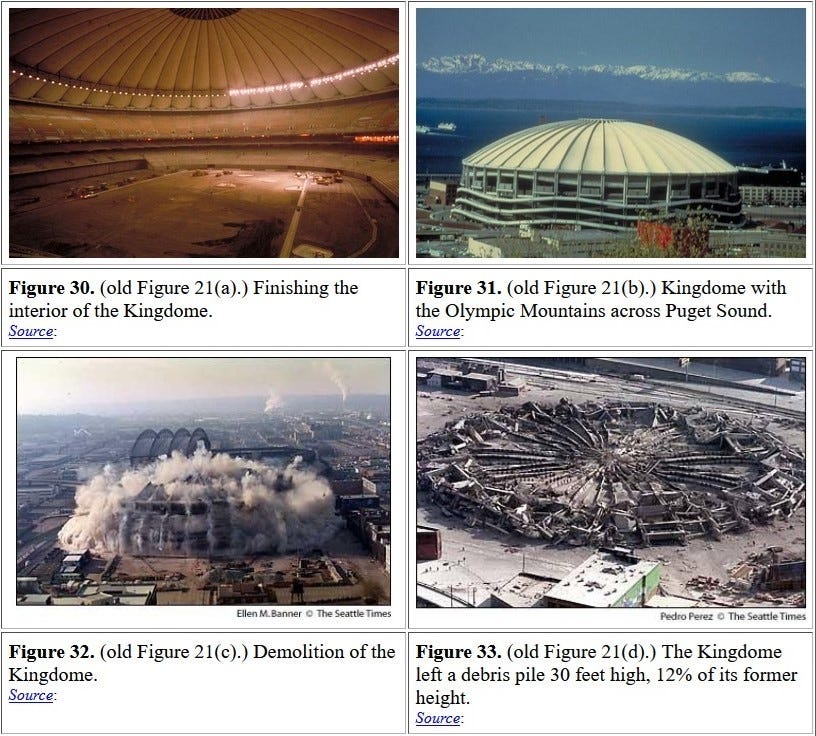
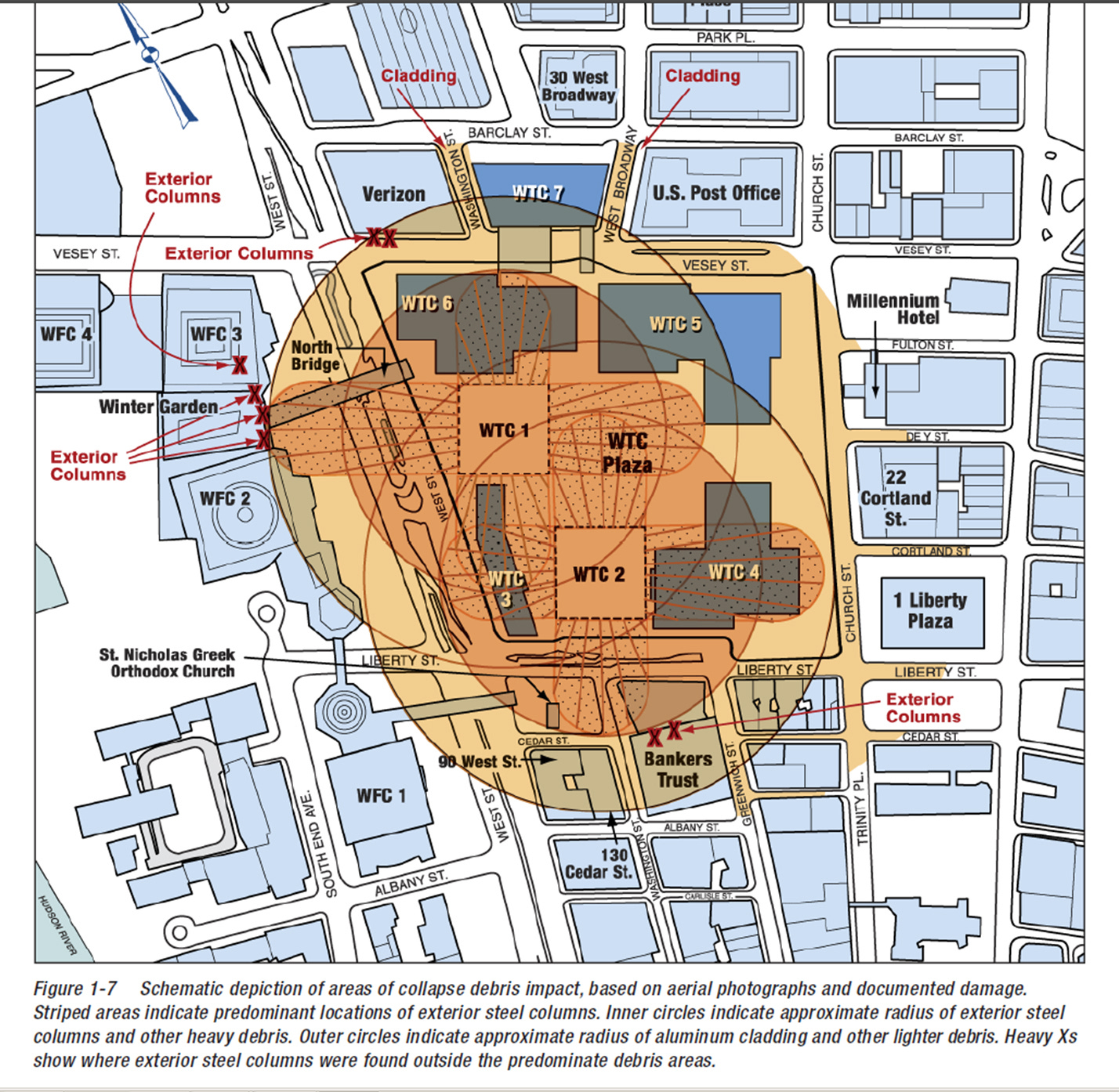
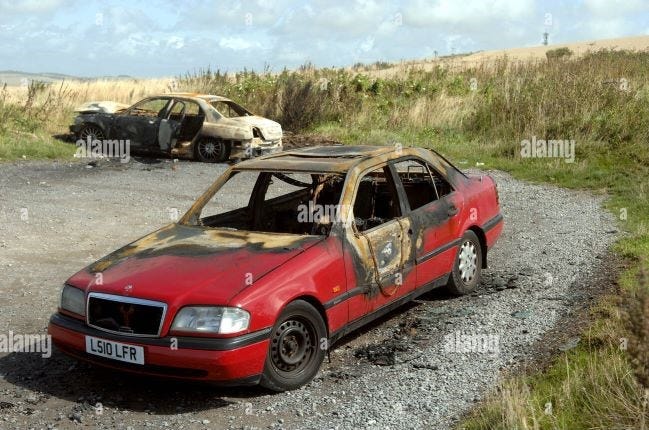
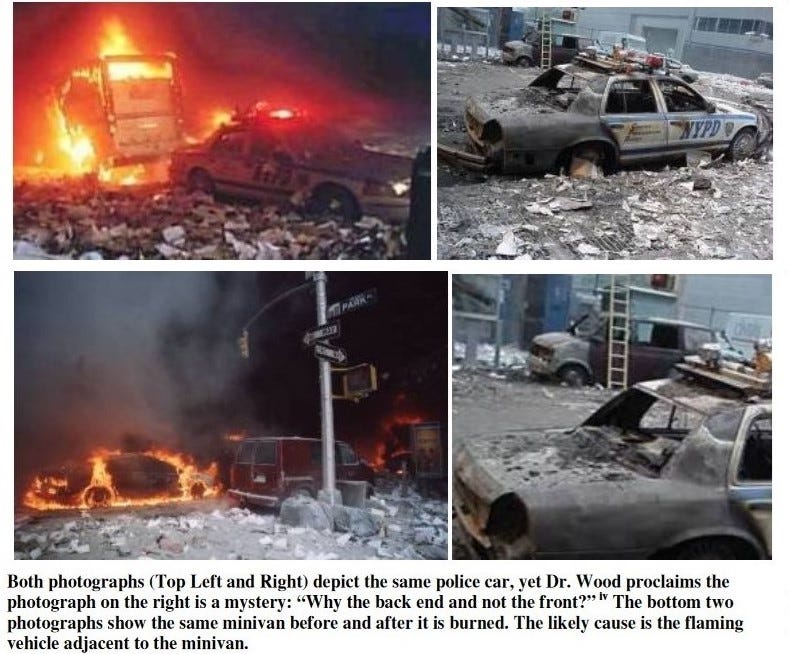
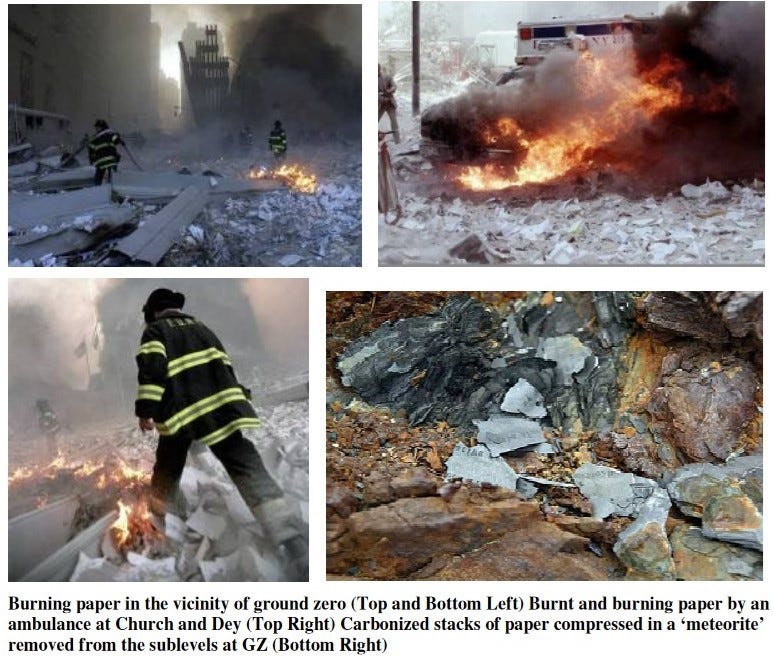
I've always found the directed energy beam and 'dustification' nonsense, that people share, embarrassingly cringe and annoying!
Francis, this is not a comment about your substack write up, I’m writing to you about the yellow board program. I don’t see a way to DM you on Twitter, otherwise I would write to you that way rather than in your comments section. I live in British Columbia, Canada and the city I live in is fast becoming a Smart City. We have bike lanes in place and narrowing of roads etc. My friend and I are planning to do the yellow boards (hope you don’t mind us copying you). We are ready to go out there to inform as many people as we can before it’s too late. I am wondering what you found worked best when you stood with your yellow boards. Did you find certain times work better than others or some of the places you stood worked better? I’m on Twitter as Lancashire Lass (I’m originally from Burnley) and I do have DM set up. Please feel free to contact me through there. I believe we must do whatever we can to stop this global agenda.. Thank you so much Francis. I would very much appreciate any ideas and comments you may have. Andrea